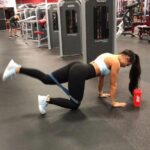Becoming a professional soccer player requires more than just skill with the ball. It demands a level of fitness and physical conditioning that is unparalleled in the world of sports.
To achieve pro soccer player fitness, athletes must adhere to a strict routine that encompasses not only rigorous training but also proper nutrition, rest, and mental preparation. This article will provide an in-depth look at the commitment and dedication required to reach this level of fitness, as well as the steps and strategies necessary to achieve it.
Setting goals is essential in any athletic pursuit, and aspiring pro soccer players are no exception. Establishing both short-term and long-term fitness objectives provides a roadmap for progress and serves as motivation to push through challenging workouts and setbacks.
Additionally, understanding the importance of nutrition in maintaining peak physical condition cannot be overstated. A balanced diet rich in nutrients fuels the body for intense training sessions and aids in muscle recovery, playing a crucial role in achieving pro-level fitness.
In addition to nutrition, developing a strategic training schedule is vital for building endurance and strength. Consistent, rigorous workouts are necessary to meet the physical demands of professional soccer. However, rest and recovery should not be overlooked; they are equally important in preventing injury and maintaining overall well-being. By understanding these key components of pro soccer player fitness and embracing a disciplined routine, athletes can work towards reaching their ultimate goal of achieving elite conditioning on the field.
Setting Goals
Short-term goals can include targets such as improving speed, increasing endurance, or mastering specific skills on the field. These goals should be achievable within a few weeks to a few months and serve as stepping stones towards long-term objectives. Long-term goals may involve reaching a certain level of physical conditioning, making the starting lineup for a team, or even competing at the professional level.
When setting these fitness objectives, it is crucial to consider individual abilities and limitations. Each player’s body is unique, and what works for one person may not work for another. Therefore, it is important to consult with a coach or trainer to develop personalized goals that align with an individual’s capabilities while still providing a challenge.
In addition to working with professionals in the field, it can also be beneficial to look towards successful pro soccer players as sources of inspiration when setting fitness goals. Observing their training routines and learning about their journey can provide valuable insights into what it takes to achieve peak physical condition for the sport.
By setting clear and realistic short-term and long-term fitness objectives based on individual abilities and aspirations, aspiring players can pave the way for success on their path towards pro soccer player fitness.
Nutrition
To achieve pro soccer player fitness, a balanced and nutrient-rich diet is essential to maintain peak physical condition. A proper nutrition plan not only fuels the body for training and matches but also aids in recovery, injury prevention, and overall well-being. Here are some key elements of a nutrition plan for aspiring pro soccer players:
- Balance of macronutrients: A proper balance of carbohydrates, proteins, and fats is crucial for meeting the energy demands of training and matches. Carbohydrates are the body’s primary source of fuel, while proteins aid in muscle repair and growth, and healthy fats support hormone production and overall health.
- Hydration: Proper hydration is vital for optimal athletic performance. Dehydration can lead to decreased endurance, strength, and cognitive function. Soccer players should aim to drink plenty of water throughout the day and during training sessions to stay properly hydrated.
- Nutrient-dense foods: Filling your plate with nutrient-dense foods such as fruits, vegetables, whole grains, lean proteins, and healthy fats ensures that your body gets the vitamins, minerals, and antioxidants it needs to support overall health and performance.
In addition to focusing on what to eat, it is also important for aspiring pro soccer players to pay attention to when they eat. Eating small meals or snacks every few hours can help maintain steady energy levels throughout the day. This approach also supports muscle recovery after intense workouts or matches.
Overall, a balanced and nutrient-rich diet plays a fundamental role in maintaining peak physical condition for pro soccer players. By fueling their bodies with the right combination of macronutrients, staying properly hydrated, and consuming nutrient-dense foods regularly throughout the day, aspiring athletes can optimize their performance on the field while supporting their long-term health.
Training Schedule
To achieve pro soccer player fitness, it is crucial to create a rigorous and strategic workout routine that focuses on building endurance and strength. This training schedule should be carefully planned and executed, taking into consideration the specific physical demands of the sport. Here are some key components to consider when designing a workout routine aimed at achieving pro soccer player fitness:
- Cardiovascular Training: Incorporating high-intensity interval training (HIIT), running drills, and aerobic exercises to improve cardiovascular endurance on the field.
- Strength Training: Including resistance exercises for the lower body, core, and upper body to build overall strength and power necessary for soccer performance.
- Flexibility and Mobility Work: Integrating stretching routines, yoga, or pilates to improve flexibility, prevent injuries, and enhance agility on the field.
In addition to designing a comprehensive workout routine, it is important to consider the frequency and intensity of training sessions. Pro soccer player fitness requires consistent effort and dedicated training. This means committing to regular workouts, often multiple times per week, with a focus on progressively increasing the intensity of exercises as fitness levels improve. It is also essential to incorporate rest days into the training schedule to allow for proper recovery and muscle repair.
Ultimately, creating a successful workout routine for pro soccer player fitness requires careful planning, dedication, and hard work both on and off the field. By focusing on building endurance, strength, flexibility, and consistency in training sessions, aspiring players can work towards achieving peak physical condition necessary for professional-level performance.
Recovery and Rest
Rest and recovery are crucial components of any fitness routine, especially for those aspiring to achieve pro soccer player fitness. While it may be tempting to push through grueling workouts without giving the body adequate time to rest, doing so can actually hinder progress and increase the risk of injury. Proper rest allows muscles to repair and rebuild, leading to improved strength and endurance over time.
In addition to preventing physical injury, prioritizing rest and recovery also plays a significant role in maintaining overall well-being. High-intensity training and rigorous physical activity can take a toll on the body, leading to fatigue and potential burnout. By incorporating rest days into a training schedule, athletes can ensure that they are not only physically strong but also mentally refreshed and ready to perform at their best.
It is important for aspiring pro soccer players to recognize that rest and recovery are not signs of weakness or lack of dedication. In fact, they are essential components of a comprehensive training program aimed at achieving peak performance. By listening to their bodies, allowing for adequate recovery time, and implementing self-care practices such as proper hydration and quality sleep, athletes can optimize their physical condition and ultimately work towards reaching pro player fitness levels.
Mental Preparation
Succeeding as a professional soccer player takes more than just physical fitness. Mental preparation is equally important to overcome challenges and setbacks on the field. Developing mental toughness and resilience is crucial for pro soccer player fitness, as it helps athletes maintain focus, stay motivated, and push through difficult situations during training and matches.
One key aspect of mental preparation is visualization. Athletes can mentally rehearse their actions, visualize success, and imagine themselves overcoming obstacles. This technique can help boost confidence and reduce anxiety, leading to improved performance on the field. Additionally, setting realistic goals and maintaining a positive mindset are essential components of building mental toughness.
Another important factor in mental preparation is learning to deal with pressure. Professional soccer players often face high-stakes situations, such as penalty shootouts or crucial plays at the end of a game. Developing resilience and composure under pressure is vital for success in these moments. Techniques like deep breathing or mindfulness meditation can help athletes stay calm and focused during intense situations.
In order to achieve pro soccer player fitness, athletes must prioritize their mental well-being alongside their physical training routine. By developing mental toughness and resilience, players can enhance their overall performance and increase their chances of reaching the pinnacle of their sport.
| Mental Preparation | Benefits |
|---|---|
| Visualization | Boosts confidence and reduces anxiety |
| Dealing with Pressure | Enhances resilience under high-stakes situations |
| Mindfulness Techniques | Improves focus and composure under pressure |
Consistency
Benefits of Consistency
Consistency in training and lifestyle habits allows the body to adapt and improve over time. It helps in building endurance, strength, and agility, crucial components for success in soccer. When an athlete consistently adheres to a fitness routine, they are more likely to see steady progress and improvements in their overall physical performance.
Additionally, maintaining a consistent routine promotes discipline and dedication, important qualities for any professional athlete. It helps individuals stay focused on their long-term goals and remain motivated even when faced with challenges or setbacks.
Tips for Maintaining Consistency
To maintain a consistent fitness routine, athletes should prioritize time management and planning. Scheduling workouts and meal times in advance can help individuals stay on track with their fitness goals. Moreover, finding enjoyment in the activities involved in the routine can make it easier for athletes to stick with it over the long term.
It is also essential to recognize the importance of rest days within the routine. Rest is an integral part of the training process as it allows the body to recover and prevent burnout or injury. By striking a balance between hard work and rest, athletes can maintain consistency without sacrificing overall well-being.
Monitoring Progress
Performance Metrics
Tracking performance metrics is essential for assessing progress and identifying areas for improvement. This includes measurements such as speed, agility, strength, endurance, and body composition. By regularly monitoring these metrics, athletes can gauge their development and make necessary adjustments to their training routine. For example, if an athlete notices a decrease in speed or agility, they may need to focus on specific drills and exercises to target those areas.
Tracking Tools
In addition to performance metrics, various tracking tools can be utilized to monitor progress. Fitness apps, heart rate monitors, GPS watches, and wearable technology can provide valuable insights into training intensity, recovery periods, and overall health. These tools allow athletes to gather data on their workouts and physical condition, enabling them to make informed decisions about their training regimen. By utilizing tracking tools effectively, athletes can optimize their fitness routine for peak performance.
Adjusting the Routine
Based on the data collected from performance metrics and tracking tools, athletes can make informed decisions about adjusting their routine as needed. This may involve modifying workout intensities, adding new exercises or drills, altering rest periods, or revising dietary plans.
By being proactive in analyzing their progress and making necessary adjustments, athletes can continue to improve and maintain their peak physical condition. It’s important to remember that fitness is not static – it requires continuous adaptation based on performance data and individual response to training stimuli.
By incorporating a comprehensive approach to monitoring progress through performance metrics and tracking tools, athletes can fine-tune their routine to achieve pro soccer player fitness levels faster and more effectively.
Conclusion
In conclusion, the path to achieving pro soccer player fitness is not an easy one, but the rewards are certainly worth the dedication and discipline required. Setting clear short-term and long-term goals is essential in keeping focused and motivated throughout the journey. By establishing a rigorous training schedule, maintaining a balanced diet, prioritizing rest and recovery, and honing mental resilience, aspiring athletes can build the physical and mental strength necessary to reach their peak performance.
Consistency is key to success in any endeavor, and this rings especially true when striving for pro soccer player fitness. Without a consistent routine, it’s challenging to make meaningful progress towards one’s goals. It’s vital to stay committed to the established regimen even when faced with obstacles or setbacks along the way.
As athletes embark on their pursuit of pro soccer player fitness, they must also remember that monitoring progress and adapting their routine as needed are crucial components of success. By utilizing performance metrics and tracking tools, individuals can measure their improvements over time and make necessary adjustments to maximize their potential. Ultimately, achieving pro player level conditioning requires unwavering commitment, but the sense of accomplishment and fulfillment that comes with reaching such a pinnacle is immeasurable.
Frequently Asked Questions
How Do You Get a Body Like a Professional Soccer Player?
Getting a body like a professional soccer player requires a combination of intense physical training, proper nutrition, and dedication. This includes exercises to improve speed, agility, endurance, and strength. To achieve the lean and muscular physique of a pro soccer player, consistent workouts focusing on lower body strength and core stability are essential.
How Do You Train to Be a Professional Soccer Player?
Training to become a professional soccer player involves a rigorous schedule that typically includes daily practice sessions focused on technical skills, tactical awareness, fitness, and mental preparation. This often requires working with experienced coaches who can guide players in improving their ball control, passing accuracy, decision-making, and overall game intelligence.
How Many Hours a Day Does a Pro Soccer Player Train?
Professional soccer players usually train for about 4-6 hours per day during the regular season, which includes various activities such as team practices, gym sessions, recovery work, video analysis, and individual skill development. During the off-season or preseason periods, training hours may increase to help players build their overall fitness levels and prepare for the upcoming competitions.

Passionate about providing useful information to anyone with an interest in the field of Personal Training, I strive to pass on to our readers quality information and to answer any questions about Personal Trainers, the work they do and how to become one.





